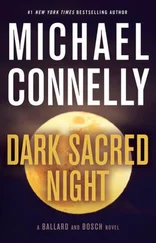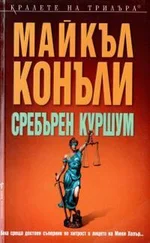Michael Connelly
Fair Warning
To Tim Marcia, Detective
Many thanks for your service to the City of Angels
Who is not at once repulsed and attracted by a diabolical act?
— David Goldman,
Our Genes, Our Choices
She liked his car. It was the first time she had been in an electric. All she could hear was the wind as they cut through the night.
“So quiet,” she said.
Only two words and she had slurred them. The third Cosmo had done something to her tongue.
“It’ll sneak up on you,” the driver said. “That’s for sure.”
He looked over at her and smiled. But she thought he was just checking on her because she had messed up her words.
He then turned and nodded through the windshield.
“We’re here,” he said. “Is there parking?”
“You can park behind my car,” she said. “I have two spaces in the garage but they’re like... one behind the other. Totem, I think it’s called.”
“Tandem?”
“Oh, right, right. Tandem. ”
She started to laugh at her mistake, a spiral laugh she couldn’t get out of. The Cosmos again. And the drops from the green pharmacy she took before heading out in the Uber that night.
The man lowered his window and crisp evening air invaded the comfort of the car.
“Can you remember the combo?” he asked.
Tina pulled herself up in the seat so she could look around better and get her bearings. She recognized that they were already outside the garage gate at her apartment. That didn’t seem right. She could not remember telling him where she lived.
“The combo?” he asked again.
The keypad was on the wall and within reach from the driver’s window. She realized that she knew the combo that would open the gate but she could not remember the name of the man she had chosen to take home.
“4-6-8-2-5.”
As he punched the numbers in she tried not to laugh again. Some guys really hated that.
They entered the garage and she pointed to the spot where he could pull in behind her Mini. Soon they were on the elevator and she pushed the correct button and then leaned into him for support. He put his arm around her and held her up.
“Do you have a nickname?” she asked.
“What do you mean?” he asked.
“Like, what do people call you? You know, for fun.”
He shook his head.
“I guess they just call me by my name,” he said.
No help there. She dropped it. She could figure out his name later, but the truth was she probably wouldn’t need it. There would be no later. There almost never was.
The door opened on the third floor and she led him into the hallway. Her apartment was two doors down.
The sex was good but not extraordinary. The only thing unusual was that he didn’t push back against her requirement of a condom. He had even brought his own. Kudos for that but she still thought he would be a one-timer. The search for that indescribable thing that would fill up the emptiness inside would go on.
After he flushed the condom he got back into bed with her. She was hoping for an excuse — early start in the morning, wife waiting at home, anything — but he wanted to get back in bed and cuddle. He roughly moved in behind her and turned her so her back was against his chest. He had shaved himself and she could feel the tiny spikes of returning hair pricking her back.
“You know...”
She got no further with the complaint. He pivoted his body and now she was on her back completely on top of him. His chest was like sandpaper. His arm came around from behind her and he bent it at the elbow into a V. He then used his free hand to push her neck into the V. He tightened his arms and she felt her air passages collapse. She could not yell for help. She had no air to make a sound. She struggled but her legs were tangled in the sheets and he was too strong. His hold on her neck was an iron vise.
Darkness began shading the edges of her vision. He raised his head off the bed and brought his mouth to her ear.
“People call me the Shrike,” he whispered.
I had called the story “The King of Con Artists.” At least that was my headline. I typed it up top but was pretty sure it would get changed because it would be overstepping my bounds as a reporter to turn in a story with a headline. The headlines and the decks below them were the purview of the editor and I could already hear Myron Levin chiding, “Does the editor rewrite your ledes or call up the subjects of your pieces to ask additional questions? No, he doesn’t. He stays in his lane and that means you need to stay in yours.”
Since Myron was that editor, it would be hard to come back with any sort of defense. But I sent in the story with the suggested headline anyway because it was perfect. The story was about the dark netherworld of the debt-collection business — $600 million a year of it siphoned off in scams — and the rule at FairWarning was to bring every fraud down to a face, either the predator’s or the prey’s, the victim’s or the victimizer’s. And this time it was the predator. Arthur Hathaway, the King of Con Artists, was the best of the best. At sixty-two years old, he had worked every con imaginable in a life of crime centered in Los Angeles, from selling fake gold bars to setting up phony disaster-relief websites. Right now, he ran a racket convincing people they owed money that they didn’t really owe, and getting them to pay it. And he was so good at it that junior swindlers were paying him for lessons on Mondays and Wednesdays at a defunct acting studio in Van Nuys. I had infiltrated as one of his students and learned all I could. Now it was time to write the story and use Arthur to expose an industry that bilked millions each year from everybody from little old ladies with dwindling bank accounts to young professionals already deep in the red with college loans. They all fell victim and sent their money because Arthur Hathaway convinced them to send it. And now he was teaching eleven future con men and one undercover reporter how to do it for fifty bucks a head twice a week. The swindler school itself might be his greatest con of all. The guy was truly a king with a psychopath’s complete lack of guilt. I also had reporting in the story on the victims whose bank accounts he had cleaned out and whose lives he had ruined.
Myron had already placed the story as a co-project with the Los Angeles Times, and that guaranteed it would be seen and the Los Angeles Police Department would have to take notice. King Arthur’s reign would soon be over and his roundtable of junior con men would be rounded up as well.
I read the story a final time and sent it to Myron, copying William Marchand, the attorney who reviewed all FairWarning stories pro bono. We didn’t put anything up on the website that was not legally bulletproof. FairWarning was a five-person operation if you counted the reporter in Washington, DC, who worked out of her home. One “wrong story” spawning a winning lawsuit or forced settlement would put us out of business, and then I’d be what I had been at least twice before in my career: a reporter with no place to go.
I got up from my cubby to tell Myron the story was finally in, but he was in his own cubicle talking on the phone, and I could tell as I approached that he was on a fundraising call. Myron was founder, editor, reporter, and chief fundraiser for FairWarning. It was an Internet news site with no paywall. There was a donate button at the bottom page of every story and sometimes at the top, but Myron was always looking for the great white whale who would sponsor us and turn us from beggars into choosers — at least for a while.
Читать дальше
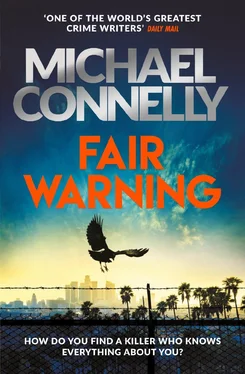


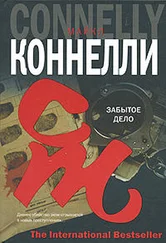
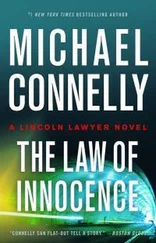
![Майкл Коннелли - Christmas Even [Short story]](/books/390532/majkl-konnelli-christmas-even-short-story-thumb.webp)
![Майкл Коннелли - The Night Fire [Harry Bosch - 22]](/books/405630/majkl-konnelli-the-night-fire-harry-bosch-22-thumb.webp)
